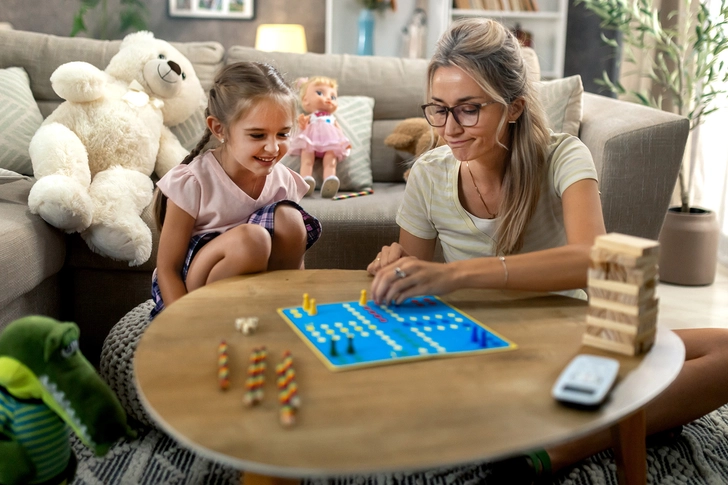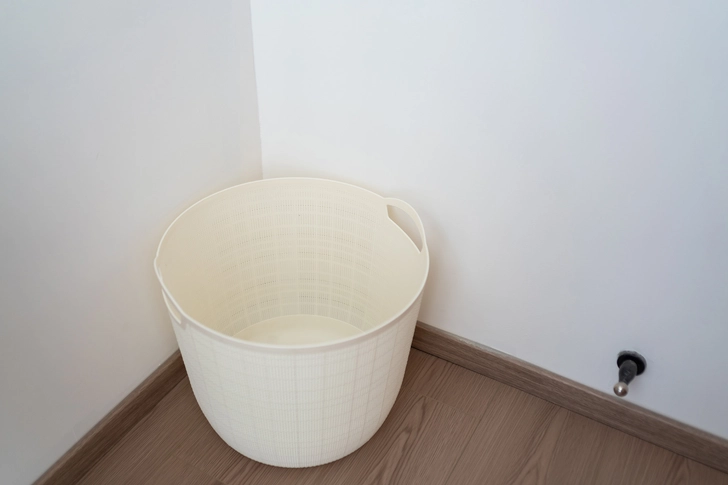- Overview
- Types
- Symptoms
- Causes & Risks
- Tests & Diagnosis
- Treatment
- Living With
- Mobility & Assistive Devices
- Complications
- Caregiving & Support
- Appointment Prep
- View Full Guide
Parenting Hacks: Top Tips for Making Your Days a Little Easier



Parenting With MS
Parenting is a challenge under ideal circumstances. Factor in MS and it’s easy to feel overwhelmed and fatigued in a heartbeat. But there are quick tips that let you nurture your child and keep MS symptoms, like fatigue and heat sensitivity, from getting in your way.

Make Adjustments for Infant Care
Small adjustments make infant care easier. When changing diapers or dressing or bathing your baby, work at a level above your waist to avoid bending over. More ideas: Keep baby close to your body when her picking up, but avoid carrying her around in your arms. Instead, use your stroller indoors. Also, choose kids’ clothes and shoes with easier-to-close Velcro fasteners.

Save Outdoor Play for Cooler Days
Avoid exhausting yourself outdoors when the temperature is high. Consider getting your kids involved with indoor group sports like basketball, gymnastics, and ice skating. When you need to be outdoors, calm heat sensitivity with a cooling vest or ice packs.

Pick Activities You Can Do From the Couch
Family fun time can be as simple as curling up with the kids to watch a movie. Create an activity basket that you keep next to the family room coffee table. Load it with age-appropriate puzzles, crayons, markers, paper pads, and their favorite board games and books. By making this area a designated play space, you can easily watch over them, plus their stuff is contained. The basket is also your ready-to-go plan B when you need to cancel an outing because of a flare.

Meal-Prep Breakfast in Advance
Make mornings less hectic and exhausting by planning ahead. That might be buying microwavable breakfast burritos or prepping a couple of days’ worth of overnight oats. Have snacks like cut-up fruits and veggies in the fridge, ready to eat. When you do want to cook, modify your meal prep routine by spreading out the steps over the course of the day to conserve energy. And do as many as you can seated.

Get Groceries Delivered
Supermarket shopping with kids is exhausting, especially when you have MS. Take advantage of online ordering services to get home delivery from your local grocery. Delivery services can be a little more expensive, but if your budget allows it, the convenience may make the extra cost worth it. Some retailers even offer drive-up services where your groceries are brought directly to your car outside the store for free. Keep a basic weekly list on your phone and add or subtract as needed. Look for options that also offer same-day service for when you need last-minute items. By checking out various websites, you can compare prices without any legwork.

Create a Kids’ Drop Zone
You don’t need a designated mudroom to help keep your kids organized. Set a large, open basket for each of your kids by the door they use regularly to give them a place to drop their jackets, backpacks, and any sports equipment when they get home from school or practice. This should help you avoid hunting around the house for their stuff when it’s time for homework later on.

Prioritize Must-Do and Not Today Tasks
Create a master parenting and home care to-do list. Then, rank each item in terms of importance to you and your kids. Feeding and reading, for instance, are nurturing non-negotiables, but many housekeeping chores can be done weekly or twice a week rather than every day. Even young kids can help out — they’ll gain a sense of accomplishment and learn important life skills.

Let Apps Remember for You
Deal with cognitive fog by tapping into the technology already on your smartphone and computer, starting with the built-in calendar. Use the color-coding feature to assign different colors for carpooling dates and other parenting-related tasks, doctor visits, bill paying, and other household chores. Share the calendar with family members so that everyone’s on the same page. Check out more sophisticated but low-cost organizing apps that can keep lists for you.

Choose Battles With Kids Carefully
It’s no secret that kids can be demanding and challenge you over control from an early age (one reason for the term “terrible twos”). Your child might insist on picking out their own (mismatched) clothes or having breakfast food for dinner. Arguing is exhausting, so -- safety aside -- let them make small decisions that have no real impact.

Track Your Highs and Lows
Keep a log that notes times of day when you’re most tired and most energetic. Note activities, like exercise, that give you energy, as well as those that leave you fatigued. Use your unique pattern to plan when you can be active with your kids and when you really need to rest and recharge for the next task. If you tend to be at a low point just when your youngsters get home from school, rest for the hour before they burst through the door.

Get Helpful Hacks From an OT
An occupational therapist (OT) is skilled at helping you overcome barriers, not only those related to your career but also to parenting. Just as you focus on meeting your child’s needs, the OT focuses on meeting your needs by offering parent-centric approaches that give you the support you need to parent with confidence. You’ll also get ideas for better managing symptoms and enjoying a better quality of life.

Save Energy With Smart-Home Devices
With verbal commands or the touch of a fingertip on an app, you can turn on lights, raise or lower your thermostat, or switch off a distracting TV or streaming music. Though it's not a substitute for face-to-face contact, using your phone to text or even FaceTime with older kids when you’re in another part of the house is a simple way to communicate with them. Ask them to show you texting shortcuts — fun for them and good for you to know.

Create a Support Network
Let go of the guilt or embarrassment of asking for help — most other parents are happy to assist but may not know how to approach you. A contact list of two or three other parents or relatives who can pinch-hit for you when needed means your child won’t have to miss out if a flare puts you on the sidelines. Carpooling to after-school activities is an obvious hack, but if MS keeps you from doing any driving, supply the water or snacks for the group.
IMAGES PROVIDED BY:
1) Maskot/Getty Images
2) iStock/Getty Images
3) DigitalVision/Getty Images
4) iStock/Getty Images
5) E+/Getty Images
6) E+/Getty Images
7) DigitalVision/Getty Images
8) Moment/Getty Images
9) DigitalVision/Getty Images
10) Moment/Getty Images
11) DigitalVision/Getty Images
12) Moment/Getty Images
13) Moment/Getty Images
14) DigitalVision/Getty Images
15) iStock/Getty Images
SOURCES:
Multiple Sclerosis Association of America: “Fatigue.”
Multiple Sclerosis Society of Canada: “Some Guidelines on Saving Energy.”
National Multiple Sclerosis Society: “Momentum Magazine: My Advice for Parenting with a Chronic Illness.”
MS Focus Magazine: “Tips to Parents,” “Simple Technology to Make Life Easier.”
UCLA Health: “Tips for Reducing Multiple Sclerosis Fatigue.”
Multiple Scleroiss Trust: “Juggling MS and Family Life: Five Top Tips.”
University of Michigan: "My MS Toolkit: Energy Management.”
Archives of Physical Medicine and Rehabilitation: “Supporting the Role of Parenting for People With Multiple Sclerosis: A Guide for Clinicians.”
CanDo Multiple Sclerosis: “Occupational Therapy: Redesigning Your Life With MS.”